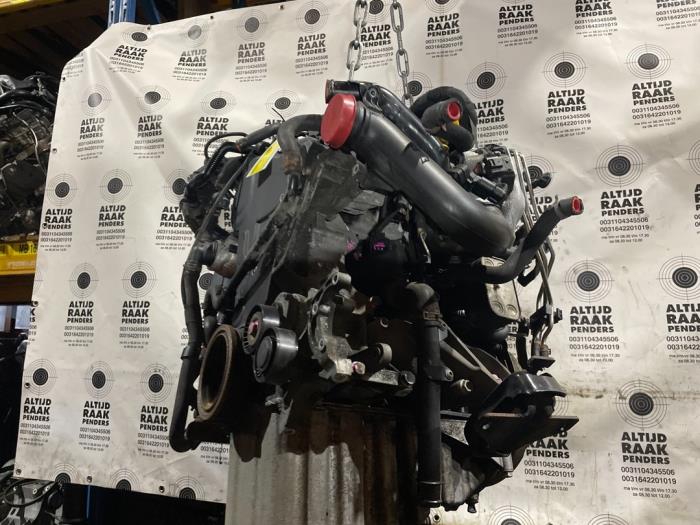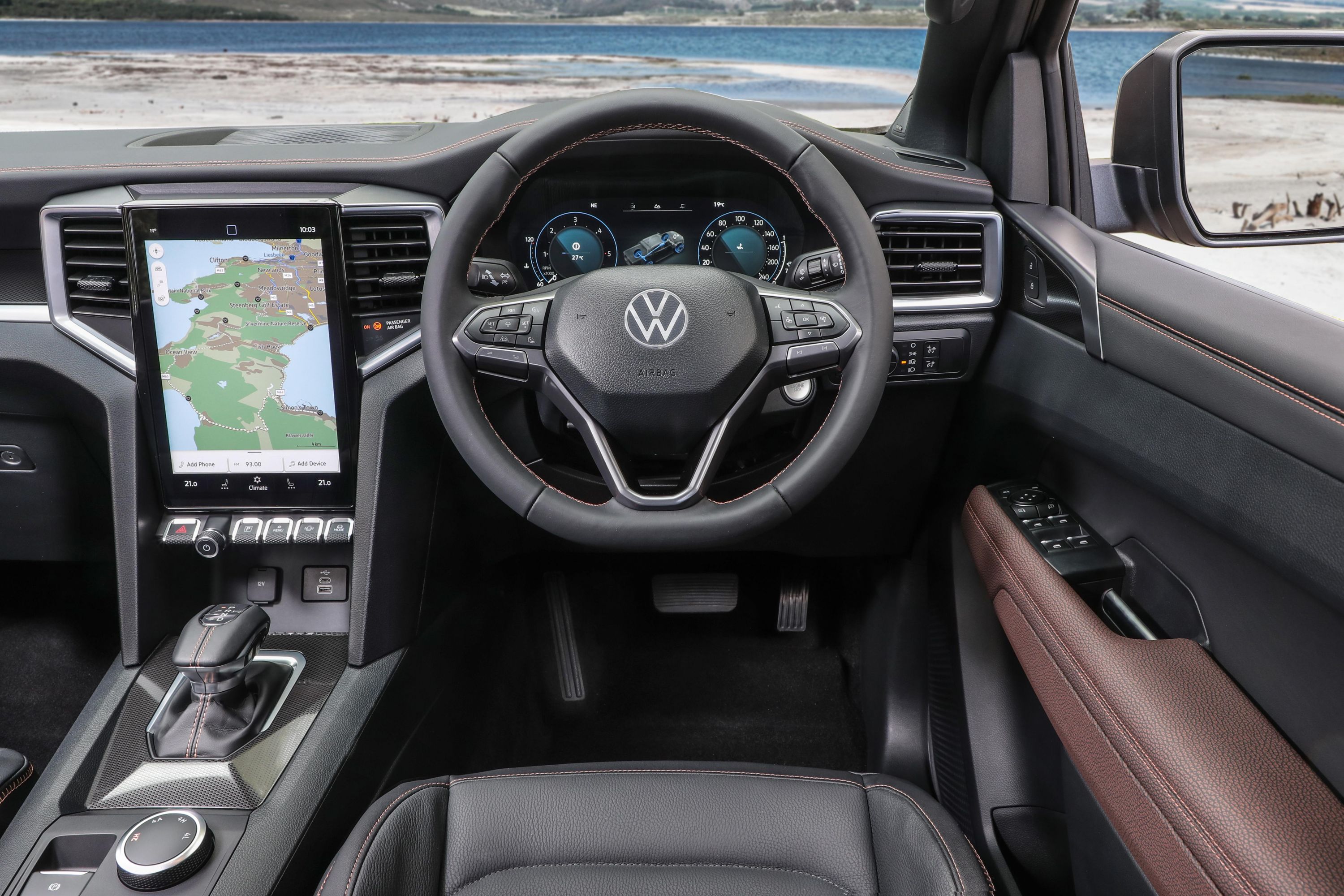Your Ultimate Source for Amarok Engine for Sale-- Dependable Engines for each Need
Your Ultimate Source for Amarok Engine for Sale-- Dependable Engines for each Need
Blog Article
Vital Factors To Consider and Tips for Selecting the Right Engine for Your Demands
Picking the appropriate engine is a complex choice that needs careful consideration of numerous elements to make sure ideal efficiency for your specific needs - amarok engine for sale. Understanding your intended application is paramount, as the needs of industrial, commercial, or leisure use will dramatically affect your choice. In addition, assessing crucial specifications such as horse power, torque, and gas efficiency, alongside maintenance demands and budget plan restrictions, will certainly lead you towards a sustainable investment. The details of engine option expand beyond these basics, prompting a better assessment of important aspects that can eventually affect your contentment and success.
Determine Your Function
Establishing your objective is an essential initial step in choosing the ideal engine for your requirements. Comprehending the certain application you desire will lead your decision-making process and make certain that you select an engine that aligns with your operational needs. Whether you need an engine for a business car, commercial machinery, or an entertainment task, each scenario demands various performance attributes and capabilities.
Take into consideration the environment in which the engine will certainly run. Will it go through hefty loads, severe temperature levels, or extended usage? Assessing these aspects will assist you recognize the necessary power outcome, gas effectiveness, and sturdiness required to fulfill your objectives.
Furthermore, consider the lasting implications of your option. Spending plan restraints, upkeep requirements, and availability of components are important factors to consider that will influence your general satisfaction and functional performance.
Eventually, verbalizing your objective will simplify the option procedure and encourage you to make an informed choice. By plainly defining your purposes, you can evaluate possible engines much more efficiently and select one that not just satisfies your present requirements but also sustains your future objectives.
Evaluate Engine Specs
Once you have actually plainly verbalized your function, the next step is to evaluate engine specifications. This procedure includes a thorough examination of various technological information that can substantially affect efficiency and viability for your meant use.
Begin by examining the engine's horsepower and torque scores. Horsepower is vital for determining the engine's ability to perform work, while torque is necessary for understanding how well it can manage hefty lots or velocity. Furthermore, think about the engine displacement, as it often correlates with power result and effectiveness.
Next, analyze the engine typeâEUR" whether it is a gas, diesel, or alternate fuel engineâEUR" as each type has unique characteristics and applications. Take note of the engine's arrangement (e.g., inline, V-type), as this can affect dimension, weight, and general performance.
An additional important facet is the engine's cooling system, which can affect dependability and upkeep needs. Last but not least, assess the producer's online reputation and guarantee offerings, as these can provide understandings into long-lasting efficiency and support. Thoroughly assessing these requirements will certainly help guarantee that you select an engine that lines up with your details needs and operational goals.
Consider Fuel Effectiveness
Fuel effectiveness is a critical element to think about when picking an engine, as it straight influences functional prices and environmental sustainability. An engine's fuel efficiency is normally gauged in miles per gallon (MPG) for vehicles or in specific fuel usage (SFC) for airplane and aquatic engines. Higher gas performance not only decreases the amount of fuel taken in yet additionally minimizes greenhouse gas discharges, making it a responsible option for eco-conscious customers.
When reviewing engine options, it is necessary to examine the driving conditions and meant use. Engines maximized for freeway driving may exhibit much better fuel effectiveness compared to those developed for stop-and-go web traffic. In addition, take into consideration the engine's innovation, such as turbocharging or hybrid systems, which can considerably enhance gas performance.

Assess Maintenance Demands

Beginning by reviewing the manufacturer's recommended maintenance intervals and procedures. Some engines might need even more regular oil changes, filter substitutes, or specialized maintenance, which can influence your operational downtime. Furthermore, take into consideration the schedule of parts and the convenience of acquiring them. Engines with prevalent popularity generally have lion's shares schedule, decreasing preparations during fixings.
An additional critical element is the technological competence needed for upkeep. Some engines might necessitate specific training for professionals, which can try this website limit your options for service carriers. Furthermore, assess whether the engine's style permits very easy accessibility to parts often needing maintenance, as this can significantly impact labor expenses.
Budget Your Investment
Understanding maintenance requirements is just one element of choosing the appropriate engine; financial considerations play a similarly crucial role (amarok engine for sale). Developing a clear spending plan is critical, as it affects not only the initial purchase rate yet likewise long-term operational prices
When budgeting, think about both the in advance costs and recurring expenditures such as fuel efficiency, upkeep, and prospective repair work. A seemingly economical engine may sustain higher prices gradually because of poor gas economic climate or frequent upkeep needs. In addition, assess the availability and i thought about this price of spare parts, along with the warranties offered by suppliers, which can offer economic security against unforeseen expenditures.
It is likewise wise to variable in prospective financing choices or leasing plans, which could relieve instant financial problems. Balance your need for sophisticated features with your spending plan restraints, guaranteeing that you buy an engine that fulfills your efficiency needs without jeopardizing financial security.
Ultimately, an all-round budget plan will equip you to make informed decisions, straightening your engine choice with both your operational demands and economic abilities, causing a more sustainable financial investment over time.

Final Thought
In conclusion, picking the ideal engine demands a comprehensive understanding of particular requirements and applications. Careful evaluation of engine specifications, gas performance, and upkeep requirements is necessary for notified decision-making.
Fuel efficiency is a crucial element to consider when picking an engine, as it straight affects operational prices and ecological sustainability. An engine's fuel efficiency is usually measured in miles per gallon (MPG) for vehicles or in particular gas intake (SFC) for Discover More Here aircraft and marine engines. Diesel engines normally give better gas efficiency than gas engines. Inevitably, selecting an engine with a solid focus on gas effectiveness can lead to significant long-lasting cost savings and contribute favorably to ecological initiatives. Mindful evaluation of engine specs, gas performance, and upkeep demands is essential for informed decision-making.
Report this page